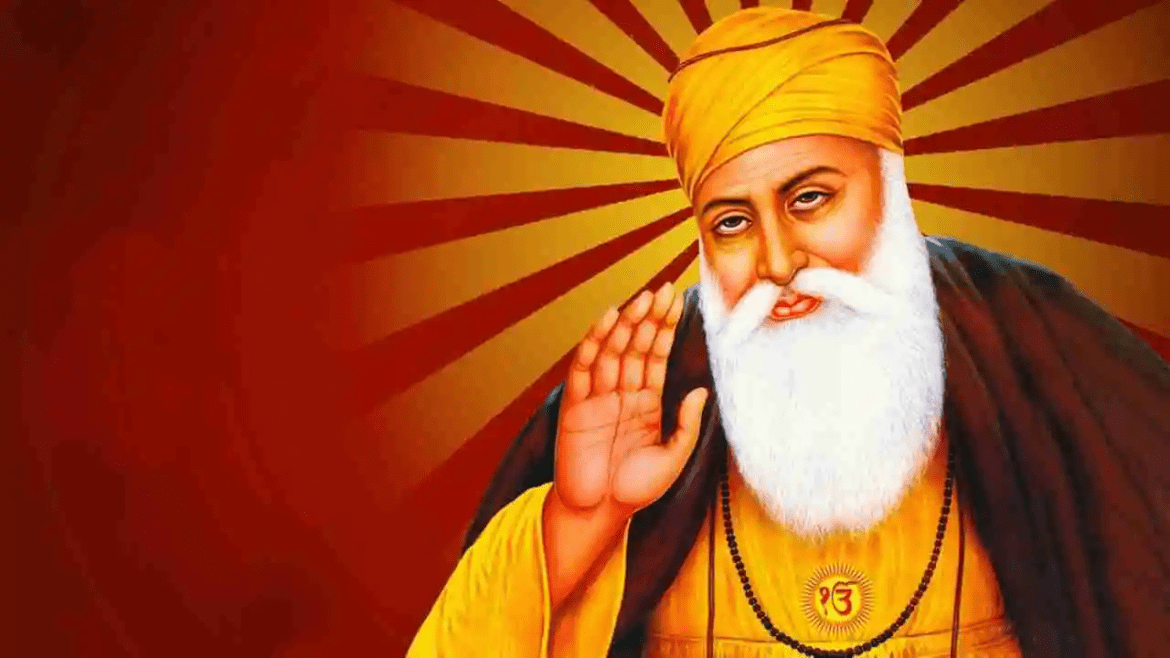AI Generated Summary
- Guru Nanak was born a Hindu and at the age of eleven all Hindu boys of his caste would start wearing a sacred thread to distinguish them from others.
- This could involve one-tenth of a person’s income to the “Sangat” or charity (known as Daswandh) and also giving alms to the poor and needy.
- A ‘langar’ is a huge community kitchen that is open to people of all faiths and backgrounds and provides free nutritious meals to them.
India’s secularism is based on the principles of equality, non-discrimination, and respect for all religions. One of the founding pillars of this secularism was Shri Guru Nanak Devji, the founder of the Sikh religion. His teachings emphasized the importance of equality, social justice, and community service and his actions set an example for generations to follow.
As laid down by Shri Guru Nanak Dev ji, there are 3 basic principles of Sikhism:
1. Kirat Karo – Earning a livelihood by means of earnest, honest efforts and endeavours.
2. Naam Japo – Remembering God through meditation at all times during each and every activity.
3. Vand Chakko – Selflessly serving others, sharing income and resources including foodstuff and other services.
Apart from these, “Sewa” or selfless service is an essential essence of this religion. There are three types of Sewa; a). Tan (physical aspect) – Involving physical works and tacks to show selfless service. For example, cooking or serving Langar or cleaning a Gurudwara. b). Man (mental aspect) – Using mental skills and talents. For instance, helping devotees understand the teachings of Sikhism, propagating its principles, and making people familiar with techniques of playing traditional musical instruments used during worship. c). Dhan (material aspect) – involves selfless sharing of material wealth. This could involve one-tenth of a person’s income to the “Sangat” or charity (known as Daswandh) and also giving alms to the poor and needy.
“Through selfless service, eternal peace is obtained,” says the Guru Granth Sahib. All three aspects of Sewa are equally important and practised but depending on circumstances, a Sikh may perform one type more than the others.
Nanak always stressed the concept of universal brotherhood. “Sarbat Daa Bhala”, he preached that one should ask for everyone’s happiness from the Lord. Despite differences in caste, religion, and gender, one should seek well for others to get happiness in return. One such story about his rebellion at the age of eleven focuses on his emphasis on equality. Guru Nanak was born a Hindu and at the age of eleven all Hindu boys of his caste would start wearing a sacred thread to distinguish them from others. Nanak, however, refused to wear it saying that people should be distinguished by their actions rather than a thread!
Although there are many more such stories floating about Guru Nanak Devji, the one which is truly inspirational is “Sacha Sauda” or the True Bargain. At the age of 18, Nanak’s father, Mehta Kalu, gave Rs. 20 to his son and his friend Bhai Mardanaji to go to the village and buy some goods by reselling which they could make some profit and start a small business.
Nanak ji and Bhai Mardana left Talwandi and had not covered even twelve miles when they came to another village where people were dying of hunger, thirst, and disease. Guru Nanak then told Mardana, “Father has asked us to carry some profitable transaction but no bargain can be more profitable than feeding and clothing the needy. I cannot leave this true bargain. It is seldom that we get such an opportunity”. Hence, he went to the nearest market and bought plentiful food and water for these people. This was the beginning of what we call ‘Langar’ today.
When scolded by his father, Nanak explained his reasons for this ‘Sacha Sauda’ and even today Gurudwara Sacha Sauda stands in the place where this ‘true bargain’ took place (Farooqabad, Pakistan). Doing good for people is the way of a Sikh. Sharing with the needy makes the day of a Sikh. Hence, the ‘true bargain’ of life is sharing one’s earnings with the needy.
“Guru-Ka-Langar” or community kitchens was founded on these twenty rupees. This investment led Sikhs all over the world to give back to society. A ‘langar’ is a huge community kitchen that is open to people of all faiths and backgrounds and provides free nutritious meals to them. During times of crisis, such as Covid-19, the Sikh community stepped up to provide support and assistance to those in need. The Bangla Sahib Gurudwara (Delhi) has been arranging a meal for up to 40,000 people daily whereas the Golden Temple decided to fund the entire cost of ventilators and PPE kits across Punjab. Various Sikh organizations in many parts of the USA, including Seattle, Chicago, and Los Angeles have been distributing free food packets to the homeless, medical staff, and law enforcement officers.
Apart from this, ‘oxygen langar’ was set up by this community in Delhi during the second wave of COVID-19 providing free oxygen concentrators to patients who were unable to access medical care. Organizations like Khalsa Aid have been doing exemplary charitable work in the ongoing humanitarian crisis in Syria and Turkey providing hot meals, arranging supplies and warm clothes, etc. for the earthquake victims.
These are just some examples of the Sikhs’ staunch belief in the principles of equality and social justice. Through their actions they have set an example for the world to follow, asserting that compassion and generosity can truly make our world a better place.
By following in Guru Nanak Devji’s footsteps, the Sikh community today has become heroes in their own right as they continue to spread the message of love and peaceful coexistence throughout the universe.




